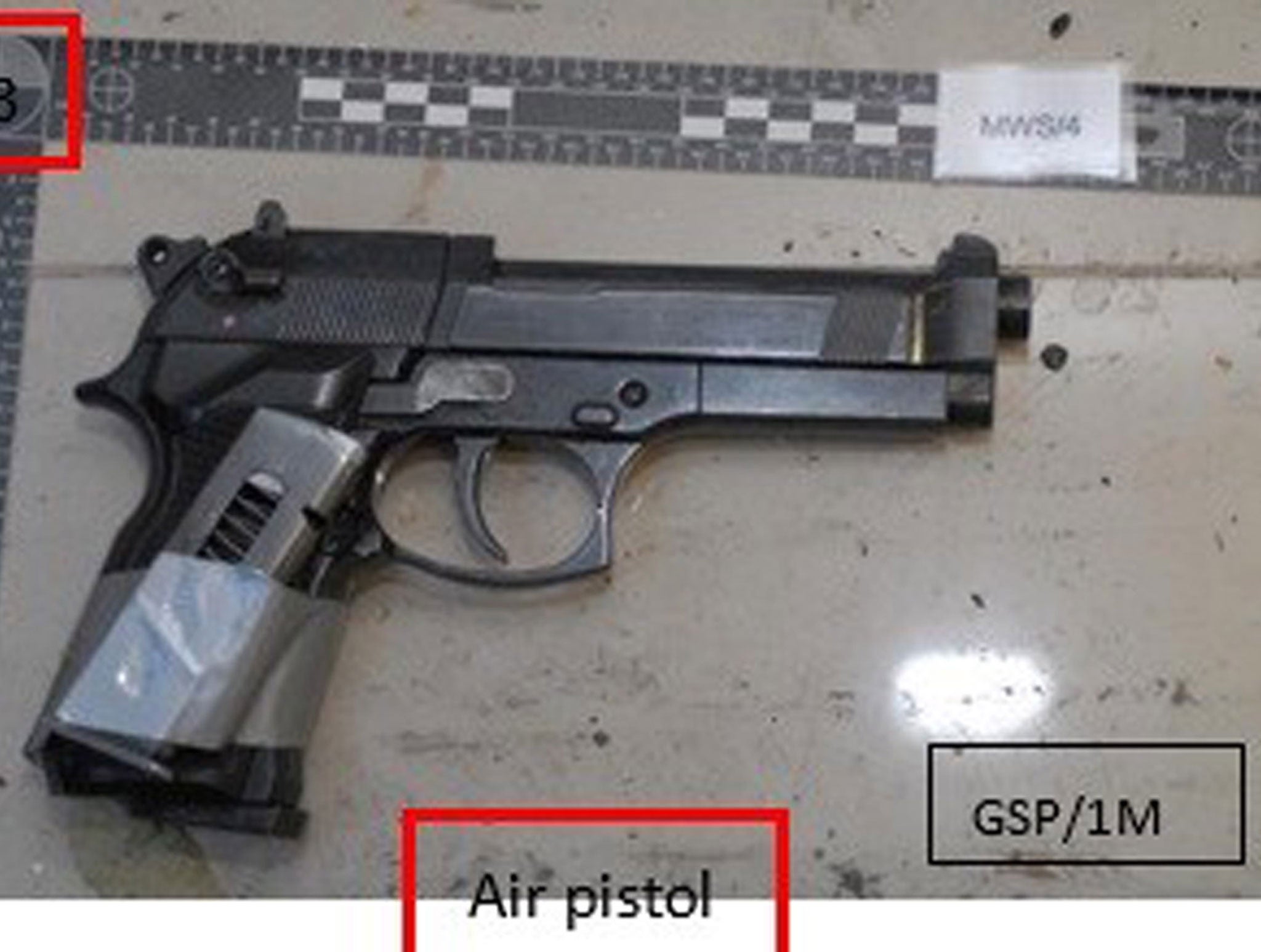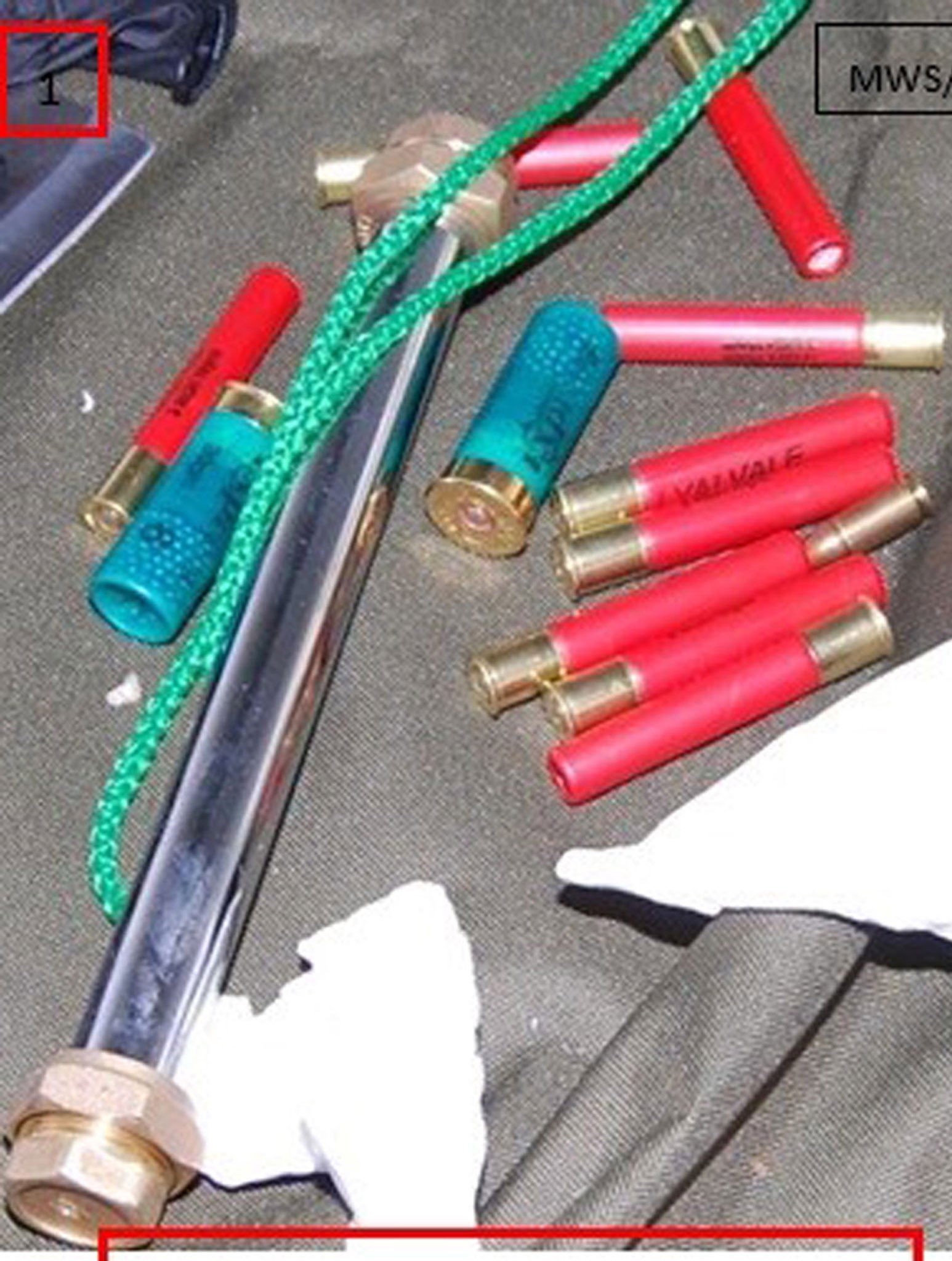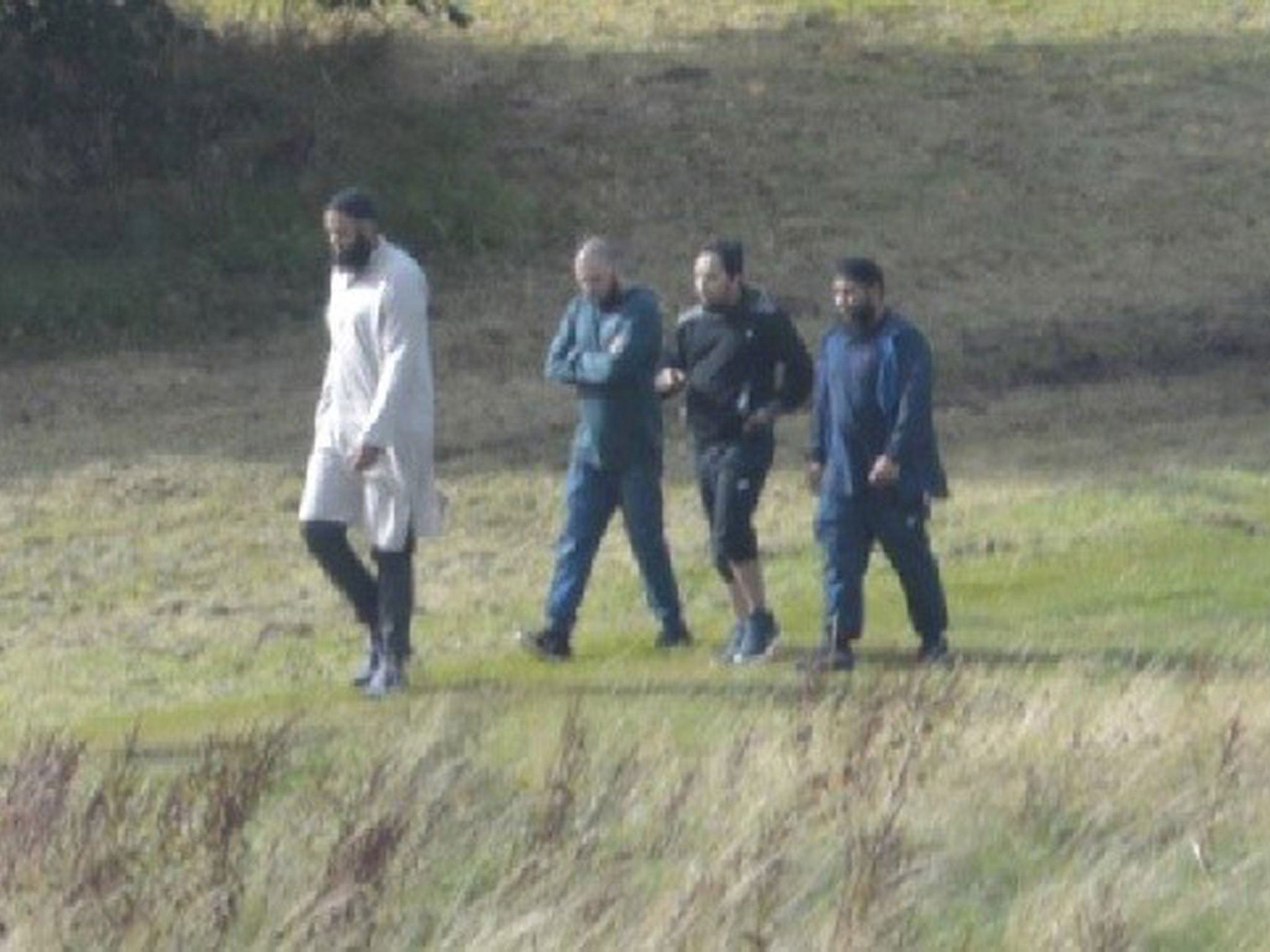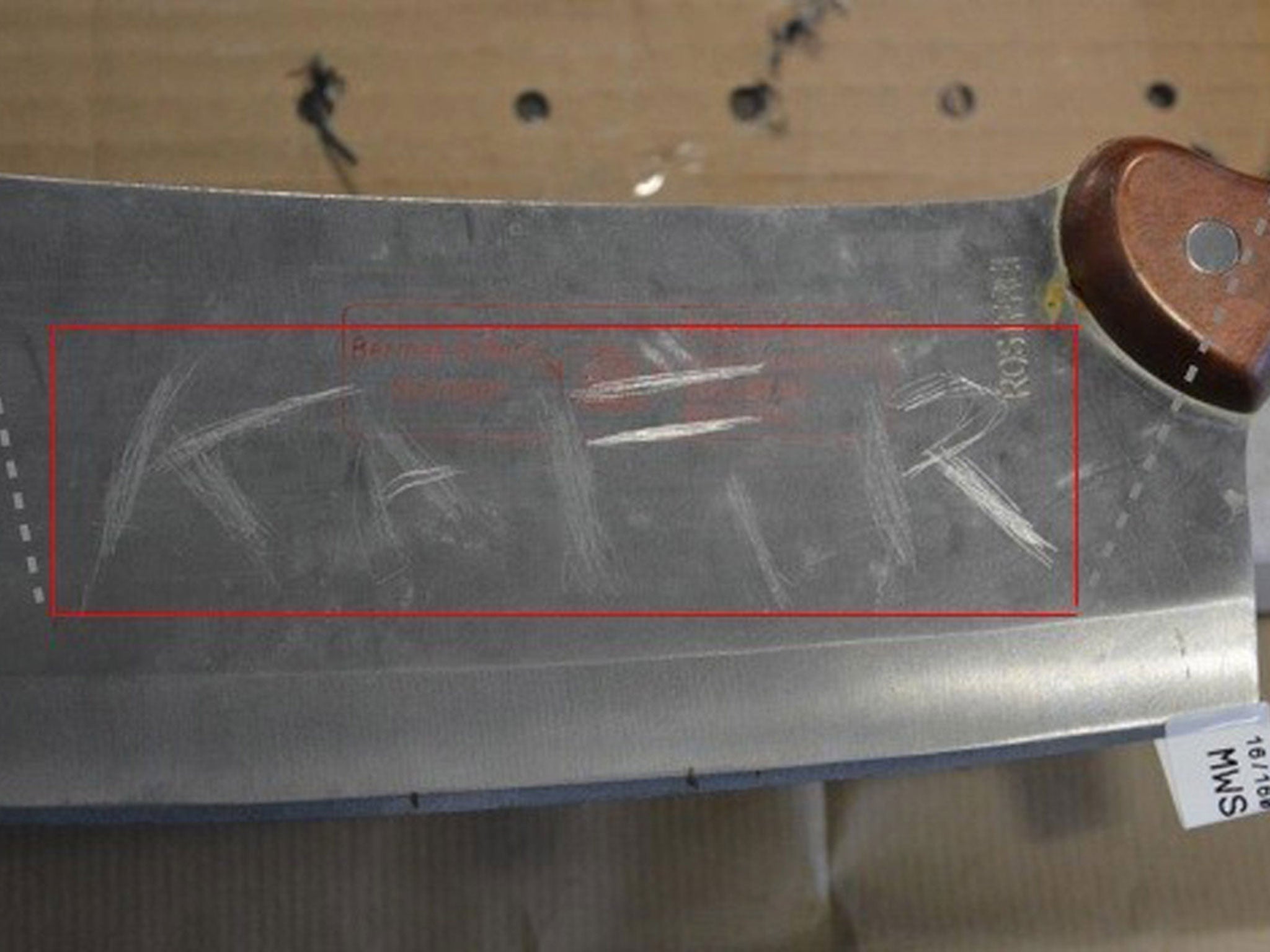'Three Musketeers' terror plot: How MI5 'got lucky' to prevent Lee Rigby-style attack using bomb and meat cleaver
Plotters had already been jailed for terror offences and were in contact with Anjem Choudary

Pressure is mounting on the Government and security services to explain how a terror cell who dubbed themselves the “Three Musketeers” were able to prepare an imminent attack while under surveillance by police and MI5.
Naweed Ali, Khobaib Hussain, Mohibur Rahman and Tahir Aziz have been convicted of plotting a Lee Rigby-style attack on police or military targets in the UK at the end of a trial dogged by debates over secrecy.
Intelligence officers had believed the plot was in an early stage of planning when they went to bug one of the men’s cars, only to find a machete and homemade pipe bomb hidden under a seat.
Three members of the group had previously been jailed for terror offences but were allowed to mingle in prison, while Hussain and Ali moved next door to each other in Birmingham after being released.
MI5 attempted to use them as informants because of their known connections to extremist Anjem Choudary, who has been linked to numerous terror cases and was awaiting trial for inviting support for Isis when the plotters travelled to meet him last year.
David Videcette, a former counter-terrorism detective in the Metropolitan Police, said security services were “very lucky” to have caught the plotters in time.
“It’s extremely worrying that individuals previously imprisoned for terrorism do not have their risk assessments upgraded,” he told The Independent.

“We’ve got lucky on this occasion.”
Ali, 28, Hussain, 25, Rahman, 32, and Aziz, 37, were convicted of terror offences at the Old Bailey and were in custody awaiting sentence, but questions remain over the lengthy journey to their conviction.
The court heard that Aziz was keen not to be “left behind” and was only brought into the plot days before they were arrested in August last year, but the other three defendants had known each other for at least five years.
Ali and Hussain were initially arrested in 2011 after attempting to fly out to a terrorist training camp in Pakistan, abandoning their plans but later pleading guilty to the preparation of terrorist acts.
In prison, they met Rahman, who had previously been jailed for possessing an al-Qaeda magazine containing instructions on how to make a pipe bomb similar to the one found in Ali’s car years later.
By the end of 2015 the trio had been released, with Ali and Hussain returning to their families in Birmingham and living next door to each other, while keeping in touch with Rahman.
Hussain, still evidently radicalised, argued with students in Birmingham city centre after claiming that the Remembrance Day poppy represented killings by the British Government. He also enrolled on a gas-fitting course at South and City College.

The specific types of pipe with compression caps he learned how to use on the course would later be found in the device the gang planned to use in their terror attack.
The court was presented evidence from WhatsApp messages between the defendants where they appeared wary of directly discussing friends who had travelled to join Isis in December 2015 because they might “get arrested and go to jail”.
Then in May last year Rahman started sending messages to a contact known as AC – believed to be Choudary – and arranging to meet him with Aziz.
Choudary, the founder of banned Islamist group al-Muhajiroun, has been linked to numerous terrorists including London Bridge attack ringleader Khuram Butt, suspected Isis executioner Siddhartha Dhar, Lee Rigby’s killer Michael Adebolajo and 7/7 bomber Mohammad Sidique Khan.
He had been the subject of several failed prosecutions before being jailed last year and was awaiting trial for inviting support for Isis at the time Rahman and Aziz travelled to meet him.
Choudary was supposed to be on strict bail conditions, including being banned from contacting a list of known extremists and confined to his home in Ilford, but is believed to have welcomed the pair on 8 May last year.
That night at 11.46pm, Choudary sent a text message to Rahman, which read: “Dear brother did you reach home yet safe and sound?”

Rahman was last in touch with Choudary just two days before the start of the period prosecutors said the “Three Musketeers” were plotting their attack.
On 20 May, as Choudary prepared to face trial at the Old Bailey, Rahman sent a message reading: “Assalamu Alaykum Warahmatulla, how u my brother? I pray that you and you’re loved ones are in good health and Imaan. Just a quick msge to check u r well, if you ever need anything don’t hesitate inshaAllah [sic].”
Later that day, Choudary replied: “Wa aleikum assalamuwa rahmatulaahi wa barukatu, alhamalulilah alaa kulli haal all is well and the family is all in good health. Just make dua (prayers) for us dear brother and pass my salam to all those up there with you please.
“I spoke to Omar yesterday from Derby and he mentioned you and said he will contact you, i told him i had already spoken to you and advised to get in touch with the brothers from there.”
Choudary’s trial started weeks later and he has since been jailed for five years for inviting support for Isis, having formally pledged allegiance to the group from a curry restaurant in London.
No further evidence of contact between him and the “Three Musketeers” was presented at the trial, which heard that the plotters attempted to conceal their plans by buying new phones and sim cards.
The jury heard that two of the contacts – Rahman and Ali – had been the target of “persistent, unwelcome and oppressive” approaches by MI5 and MI6, while Aziz said counter terror police wanted to use him as an informant after raiding his home in Stoke.
Prosecutors said Rahman, who had been offered unknown sums in payment by the security services, resumed his previous contact with MI5 in May and June 2016 in an apparent attempt to find out whether they were on the secret services’ radar and to get information.
Mr Videcette, who investigated the 7/7 London bombings, said it was “standard procedure” for spies to offer substantial amounts of money to informants in up-front monthly retainers that can “end up accidentally funding terrorism itself”.
“They will try to recruit as many people as possible but it exposes the system to extreme danger from people who want to manipulate it,” he added.
“You have to be careful not to have the informant-handler relationship turned upside down, and end up with them running you.”
Mr Videcette raised concerns that the revelations over the attempted bugging operation in court would change extremists’ behaviour in future.
The trio continued meeting until July, when Hussain began working for Hero Couriers in Birmingham city centre – a fake outfit set up by an undercover officer known as Vincent.

The next month, Ali set up a group chat on the Telegram encrypted messaging app in the name the “Three Musketeers”, including himself, Hussain and Rahman.
Police said the trio shared radical material including religious songs celebrating violence, and extremist images, messages and videos, including some linked to Isis.
After meeting at Rahman’s home in Stoke and searching the internet for information on the 2006 liquid bomb plot, the trio contacted Isis-supporting Aziz to bring him into their plans.
The next day, all four defendants were seen by a surveillance team talking while walking through a park.
After a message from Ali saying “we gotta do something” and discussing the “comfort of the Herafter” versus the “ephemeral pleasures of this world” days later, the security services moved into Hero Couriers to bug Ali’s car after he arrived for his first shift.
During a search they uncovered a JD Sports bag containing a partially constructed pipe bomb, latex gloves, cartridges, industrial tape, an imitation handgun and meat cleaver with kafir, meaning disbeliever in Arabic, scratched on it ready for the attack.
The defendants were arrested the same day, when officers also recovered a large sword from Aziz’s car.
The defendants claimed the incriminating evidence was planted by the undercover officer called Vincent, who posed as the boss of Hero Couriers, but prosecutors dismissed the claims as “theoretical conspiracy theories” and all four men were unanimously found guilty by the jury.
Ali and Hussain, both of Evelyn Road in Sparkhill, Rahman, of High Lane in Stoke on Trent, and Aziz, of Wulstan Road in Stoke on Trent, will be sentenced on Thursday.
Detective Chief Superintendent Matt Ward, head of the West Midlands Counter Terrorism Unit, said he was proud of the sometimes dangerous work done in “one of the most complex counter terrorism investigations in a number of years” but conceded more needed to be done to monitor known extremists.
“This is the second time three of these individuals have been convicted of terrorism offences after planning an attack,” he said.
“Although much work is being done in prisons and following the release of individuals, it is clear that more needs to be done.
“These are dangerous men who seem committed to carrying out an attack.
“The nature of this investigation demonstrates that the police together with our partners must stay one step ahead and that we must be ambitious in our tactics to be able to defeat the terrorist threat to our communities.”
Det Ch Supt Ward said the group attempted to evade authorities and were aware of surveillance techniques, sometimes leaving their phones at home when travelling to Stoke,” adding: “This investigation illustrates the joint work that is carried out in conjunction with MI5, together we have been able to foil a plot that would resulted in loss of life.”
Part of the trial was held in secret after the judge accepted a submission from the Home Secretary regarding a potential risk to national security arising from the disclosure of secret service operations.
Rajiv Menon, a lawyer defending Ali and Rahman, called the restriction “laughable”, adding: “It is not a state secret, with respect, that the security services are interested in recruiting Muslim informants.”
Ben Silverstone spoke up for the principle of open justice on behalf of a group of national media organisations, saying it was a matter of “pressing public interest” to confirm whether the defendants had been approached by MI5.
The Home Office declined to comment on the case and said it does not discuss intelligence operations.
Additional reporting by PA
